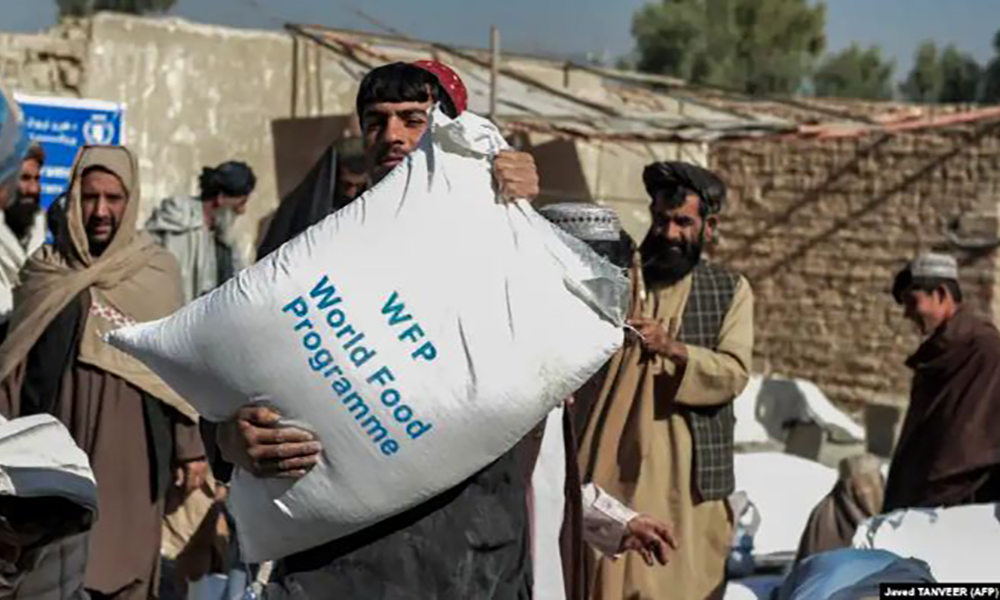The French government has pledged 3 million euros (roughly $3.3 million) to support the World Food Programme’s efforts to combat malnutrition among Afghan women and children, as Afghanistan continues to face a serious hunger crisis.
According to WFP, the funds from France’s Food Assistance Program (FAP) will support the organization’s school feeding and nutrition projects in Afghanistan, with a focus on the country’s most vulnerable people.
According to the World Food Programme, over 15,000 primary school students will receive a nutritious snack every day, and more than 35,000 children will receive monthly vegetable oil handouts to aid in family nutrition.

Furthermore, nearly 60,000 young children and over 10,000 pregnant or breastfeeding women will receive specific dietary assistance.
More than three-quarters of families in Afghanistan cannot afford the basic, nutritious diet needed to prevent malnutrition, according to Salina Grenet-Catalano, Director of Global Affairs at France’s Ministry for Europe and Foreign Affairs.
She added that France is prioritising the fight against malnutrition, especially as we prepare to host the next Nutrition for Growth summit in Paris in March 2025.
According to WFP, Afghanistan’s food crisis has worsened in recent years due to severe funding shortages.
This year, the WFP says it was forced to suspend food assistance to 2 million women and children, and last year, financial constraints forced the organization to cut 10 million people from food aid programs, escalating malnutrition rates and putting entire provinces at risk of returning to emergency status.
According to the WFP, France’s recent €3 million contribution raises its total funding for WFP’s Afghan projects to €6 million ($6.5 million) in 2024, following nearly $16 million in aid over the previous two years.
With this continuing commitment, France is now one of the top 10 contributors to the World Food Programme in Afghanistan.





